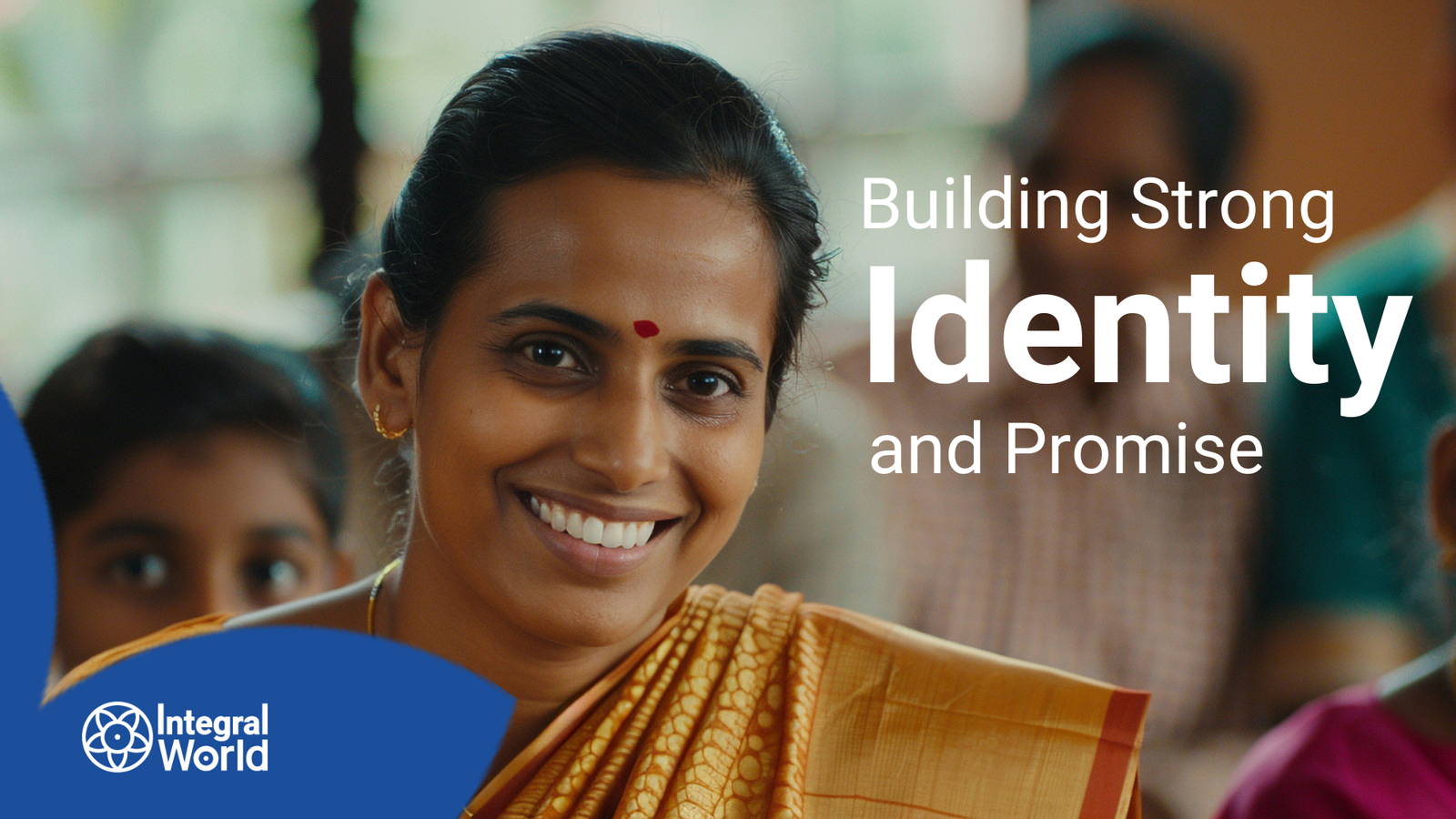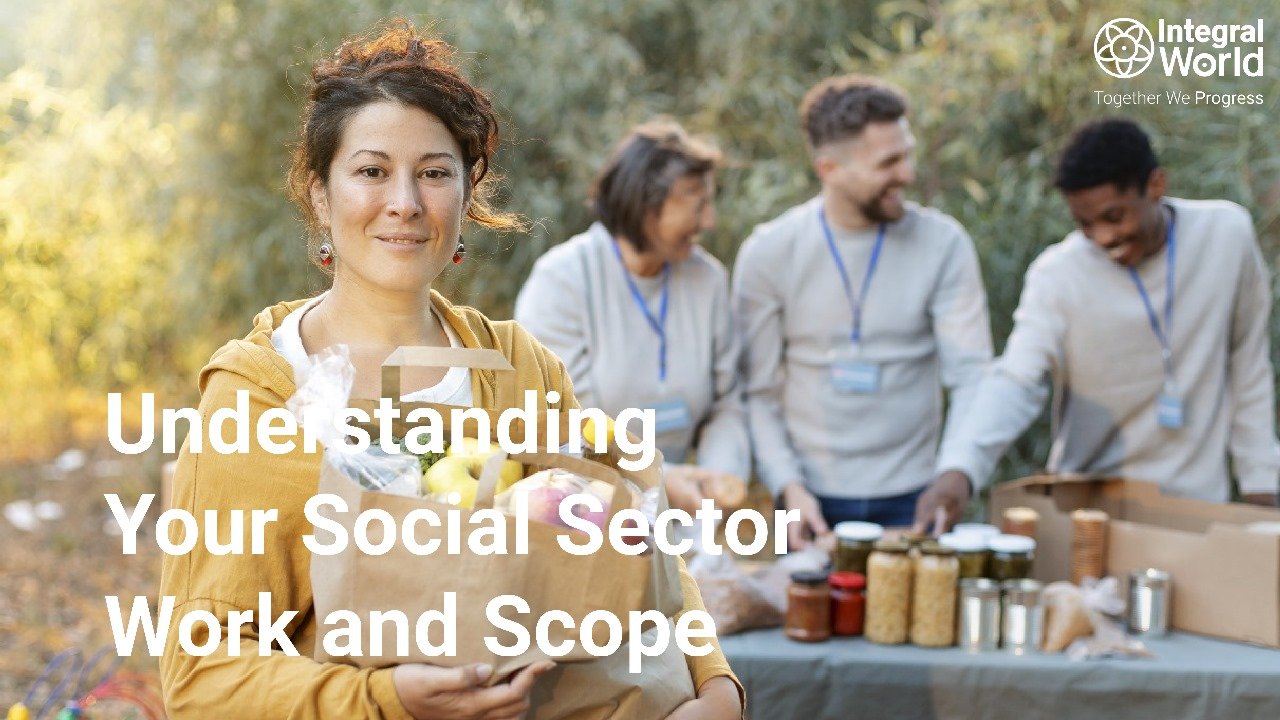In order for development organizations to effectively drive change and attain their missions they must be distinguishable. For Integral World, a non-profit organization dedicated to sustainable and holistic development, establishing a strong identity and promise is crucial. This article will explore how development organizations can build a powerful identity and clear promise, ensuring their vision resonates with stakeholders and inspires action.
The Importance of a Strong Identity and Promise
What Is Organizational Identity?
Organizational identity refers to the core values, beliefs, characteristics that define an organization’s entity as an organization. It is what makes an organization who they are and what they stand for. A strong organizational identity helps differentiate one organization from another; builds trust with stakeholders; cultivates employees’ sense of belonging.
Key Elements of Organizational Identity:
- Vision: The long-term impact that the organization aims at achieving
- Mission: The major goal(s) or purpose of an organization
- Values: Underlying principles guiding decision making Rationalizing the business process from beginning.
- Culture: They represent collective behaviors exhibited within an institution.
Delivering to Identity Pledge
The commitment of an organization is a stunning story told to stakeholders in respect of the worth and consequences it proposes. This promise must therefore be consistent with the company’s identity, and it should come across as such. An inspiring promise does not only make people support, but also makes them responsible for what it has done and consequently, its results.
Components Required for Effective Promises:
- Clarity: Its ease of comprehension is important when drafting the pledge.
- Consistency: It is necessary that any corporate action aligns with the guarantee made when starting out.
- Authenticity: The organization must be led by simple words, which are consistent with its nature.
- Accountability: In order to fulfil their promise, organizations should practice transparency.
“To be yourself in a world that is constantly trying to make you something else is the greatest accomplishment.” – Ralph Waldo Emerson
Steps towards Creating Strong Identity and Promise

Step 1: Interpretation of Core Values and Convictions
A strong identity is built upon a solid foundation of well defined core values and beliefs. These values affect how an organization behaves or decides things; they shape its culture making sure that there are no variations in how one acts. Encouraging participation from all stakeholders helps to make these values more applicable and acceptable.
Core Values Examples:
- Integrity
- Transparency
- Innovation
- Compassion
- Sustainability
Step 2: Creatively Craft a Vision and Mission Statement that Compels
A compelling vision and mission statement directs one’s path and encourages the organization. The aim of the vision is to indicate long-term ambitions while the mission describes what an organization does, its purpose and main goals. These two statements provide a roadmap for achieving the objectives set by the organization.
Example Vision Statement: A world in which no one lacks clean water or sanitation.
Example Mission Statement: Enhancing life standards through availing sustainable water solutions and sanitation facilities to needy communities.
Step 3: Unique Value Proposition
The value proposition is a clear statement of the unique advantages that an organization brings to its various stakeholders. It helps differentiate an organization from others by giving reasons why people may want to have an association with it. The value proposition must be consistent with organizational identity as well as promise made.
Value Proposition Example: We offer innovative water and sanitation solutions driven by the community, ensuring they are sustainable over time.
Step 4: Consistent Brand Identity
Recognition and trust can be increased with consistency in brand identity. This includes the name of the organization, logo, tagline, visual elements such as tone of voice as well as messages used in all communication materials reflecting its identity and promise consistently.
Brand Identity Elements:
- Logo: A graphical representation that symbolizes what an organization stands for.
- Tagline: A brief statement that summaries what an institution guarantees.
- Visual Style: Uniform use of colors, fonts, imagery etc.
- Tone of Voice: How information is conveyed; style or manner used in speaking out loud.
Step 5: Stakeholder Involvement
When building up their own identities and promises through open engagement with stakeholders for instance employees, donors, beneficiaries among others’ organizations may obtain support from them. Through regular communication involvement it ensures alignment with ownership feeling inside groups involved which is very necessary for fostering unity towards fulfilling one’s mandate properly.
Stakeholder Engagement Strategies:
- Surveys and feedback sessions
- Collaborative workshops and meetings
- Transparent and regular communication
- Recognition and celebration of contributions.
“Alone we can do so little; together we can do so much.” – Helen Keller
Step 6: Open Communication which is also Genuine
Transparency as well as authenticity are the main factors that make up trust among the stakeholders. Any organization should not hide anything regarding its goals, challenges, achievements or even failures. This includes regular updates, impact reports, and honest reflections on progress and areas for improvement.
Communication Channels:
- Website and BLOG
- Social media
- Newsletters and email updates
- Annual reports and impact assessments
External Pressures: Be adaptable of our approach and strategies while being consistent to the company’s core values and mission.
Conclusion
To effectively drive change and accomplish their missions, development organizations must have a strong identity and clear promise. These include defining core values, crafting compelling vision and mission statements, creating a unique value proposition, and engaging stakeholders in order to build trust, credibility, as well as support.
We must stay true to our identity and promise as we go on; always striving towards changing the world for better.
Integral World is committed to building a strong identity that delivers sustainable holistic development. We invite not-for-profits to reach out to us for support in strengthening their brand identity. Together, we can create a world where everyone can flourish.
To learn more about our programs and how we can assist your organization, visit our website www.Integral World.org or write to us on reach@integralworld.org
“When we are no longer able to change a situation, we are challenged to change ourselves.” – Viktor Frankl



